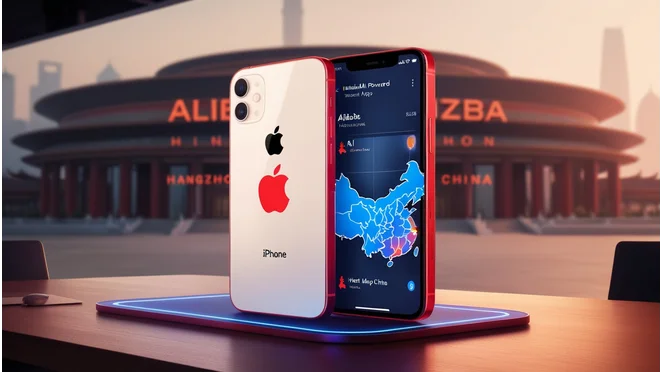Apple has confirmed a significant partnership with Alibaba to integrate AI features into iPhones sold in China. This move comes as Apple faces declining iPhone sales in the world’s largest smartphone market, with recent reports indicating an 11% year-over-year drop. Alibaba Chairman Joseph Tsai revealed the partnership at the World Government Summit in Dubai, stating that Apple chose Alibaba after considering several Chinese companies to power their phones with AI.
Reports suggest that Apple’s previous attempts to partner with China’s Baidu for AI integration faced challenges. The company also reportedly explored collaborations with ByteDance and DeepSeek before finalizing the agreement with Alibaba. Such partnerships are essential for U.S. companies like Apple to navigate the regulatory landscape in China. Both Apple and Alibaba have reportedly submitted the necessary documentation to Chinese authorities for approval.
Apple CEO Tim Cook has previously acknowledged the absence of Apple Intelligence, the company’s in-house generative AI solution, as a factor contributing to slower international sales. He noted that iPhone 16 family sales were stronger in markets where Apple Intelligence had been rolled out. The company is relying on Apple Intelligence to drive the next major iPhone “super cycle,” characterized by a significant surge in sales. However, the delayed rollout of its own generative AI solution has impacted Apple’s growth, especially as competitors like Google continue to introduce new Gemini features on Android devices.
Apple’s market share in China has also been eroded by increased domestic competition. Research firm Canalys reported that Vivo led the market in the fourth quarter of last year with a 17% share, followed by Huawei at 16%. Apple, which held a 24% share the previous year, dropped to 15%, tying with Xiaomi and Oppo. The Alibaba partnership is seen as a key strategy for Apple to recapture some of this lost market share.













